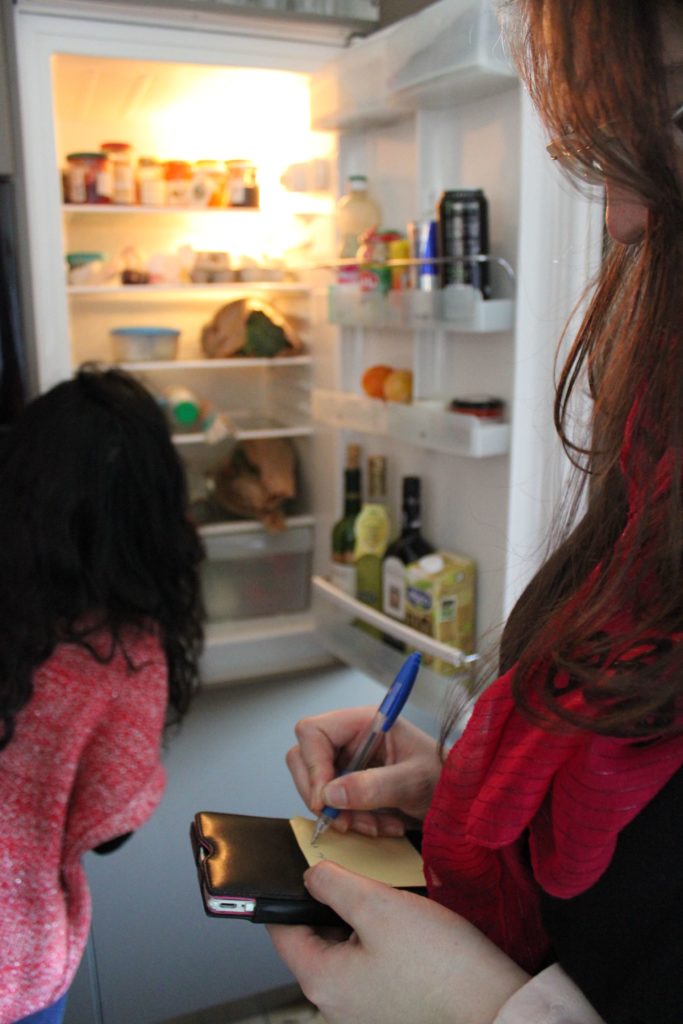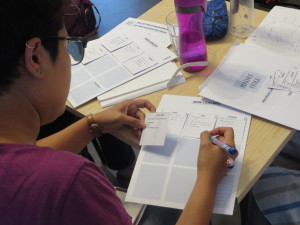The way we produce, distribute, transform, consume food has a huge impact on GHG emissions. How can local governments intervene?

The way we produce, distribute, transform, consume food has a huge impact on GHG emissions. How can local governments intervene?

Towns and cities must boost local actions to reduce carbon emissions and combat climate change. Three URBACT cities show how…
COP26, the 2021 UN Climate Change Conference, is on its way. In November, governments from around the world will gather in Glasgow (UK) to reaffirm their commitment to tackling climate change. Meanwhile, without waiting for the next COP, many URBACT cities have already been developing their own strategies, activities, and partnerships to move towards greater integration and transversality in their local climate policies.
Cities are the level at which most emissions are recorded. The world’s cities consume 60–80% of natural resources(link is external), producing 50% of global waste and 75% of greenhouse gas emissions. And this is set to increase:75% of EU citizens(link is external) live in urban areas; 66% of the world’s(link is external) population is expected to live in cities by 2050; and cities’ global carbon footprint is predicted to triple by 2030. As a result, an estimated 93% of cities face threats such as floods, storms and heatwaves, and although many are taking action to improve resilience, up to 400 million people(link is external) could be living in cities with no plan to tackle climate by 2030.
Continue reading
La région de Bruxelles-Capitale, Belgique, est entrée dans la matière de l’alimentation durable à travers le gaspillage alimentaire. En utilisant des outils traditionnels des politiques publiques (Plan de réduction régional des déchets, financement européen INTERREG, …) elle a développé une série d’outils visant à soutenir la réduction du gaspillage alimentaire auprès des ménages. Ces approches se sont notamment basées sur des cadres analytiques percevant le comportement comme résultant d’une approche linéaire, elle-même découlant d’une intention et d’une volonté d’agir directe. Or, ces approches ont montré leurs limites, et ce, malgré l’existence d’une série d’outils et conseils pour réduire le gaspillage alimentaire. A travers un projet financé par Bruxelles environnement pour mettre en place un réseau de Maîtres Frigo (des citoyens formés d’une part aux « trucs et astuces » pour lutter contre le gaspillage alimentaire et d’autre part au relais de cette information vers leurs pairs) nous avons testé une approche par la théorie des pratiques, en cherchant à développer une formation innovante tant par son contenu que par sa forme.
Continue reading
En 2016, avec Refresh xl asbl, et grâce à un subside de Bruxelles environnement, nous avons mené le projet pilote des Maîtres-Frigo.
Dans ce cadre, nous avions développé des outils d’animation d’événements et ateliers utiles pour des atelier anti-gaspi mais aussi pour tout type d’événement ou atelier, associatif ou semi-professionnel.
Il s’agit d’un « tableau de bord » pour mener votre projet, soutenu par :
Continue reading2021 is a ‘food year’ for URBACT: promoting food democracy and food sovereignty at the initiative of URBACT good practice city Mouans-Sartoux (FR) and the URBACT Transfer Network BioCanteens that it has led (with partner cities in Belgium, Bulgaria, Greece, Italy, Portugal and Romania).
URBACT will be supporting regular activities of networks around food topics and also creating a specific web page of the URBACT Knowledge Hub, dedicated to urban sustainable food systems – all with the aim to support cities in their transitions to more sustainable food systems!

These efforts also aim to build energy and commitment towards the Glasgow Food and Climate Declaration – drafted by a coalition of subnational governments, UN agencies and NGOs in consultation with city and regional governments – which will be officially launched at the 26th UN Climate Change Conference (COP26) in November 2021. We will be encouraging as many cities as possible to sign the declaration!
So, we have quite a busy year ahead that we describe in more details here…
Continue reading